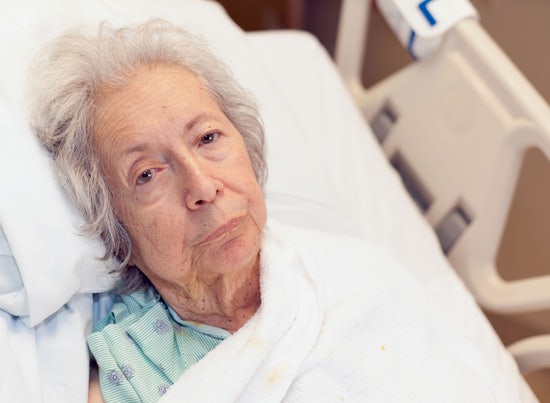Making hospitals safer for people with dementia
A new campaign has been launched to make hospitals safer and less confusing places for people with dementia.

The Caring for Cognitive Impairment campaign recognises that people with dementia or delirium are at significantly higher risk of preventable adverse events such as falls, pressure injuries, longer stays and even death, while in hospital.
The national campaign, by the Australian Commission on Safety and Quality in Health Care, calls for everyone who cares for people with cognitive impairment in a primary health care setting to improve knowledge and care practices to reduce the risk of harm in hospitals.
Cognitive impairment, such as delirium or dementia, is a common condition experienced by people in hospitals that is often not detected, or is dismissed or misdiagnosed.
Alzheimer’s Australia, supporter of the campaign, is pleased that the Commission is addressing quality of care through the development of Cognitive Impairment Standards which will be part of the National Safety and Quality Health Service Standards, against which hospitals will be assessed.
“The evidence shows hospitals can be a dangerous place for people with dementia,” Alzheimer’s Australia chief executive officer, Carol Bennett says.
“Cognitive impairment is often not detected or it is misdiagnosed, we know that 30-40 percent of cases of delirium in hospitals can be prevented.
“We welcome the Commission’s leadership in this important area, calling for action to unite everyone who cares for people with cognitive impairment, from doctors and nurses, to carers and families to get involved and do what they can to improve the prevention, recognition and treatment of delirium and to reduce the risk of harm for people with dementia in hospitals.
“With an estimated 342,800 Australians currently living with dementia in Australia, more and more of our ageing population requiring hospitalisation will have dementia, this increasing number of vulnerable people need to be supported by improving the quality of hospital care,” according to Ms Bennett.
“That experience should be one where hospitals are not dangerous and confusing but rather a place where people with dementia can be supported as they should be.”
Imelda Gilmore, who cares for her husband Graham, who is living with dementia, welcomes the initiative.
“The campaign is a very important step in educating hospital staff to be aware that the carer who accompanies the patient is their greatest asset, to ensure the care that clinical staff provide will achieve the best result.” Mrs Gilmore says.
Visit the Caring for Cognitive Impairment Campaign online for more information.











![The new Aged Care Act exposure draft is slated for release in December of 2023, but advocates hope to see it rolled out on January 1, 2024. [Source: Shutterstock]](https://agedcareguide-assets.imgix.net/news/articles/wp/agedcareact__0811.jpg?fm=pjpg&w=520&format=auto&q=65)












Comments